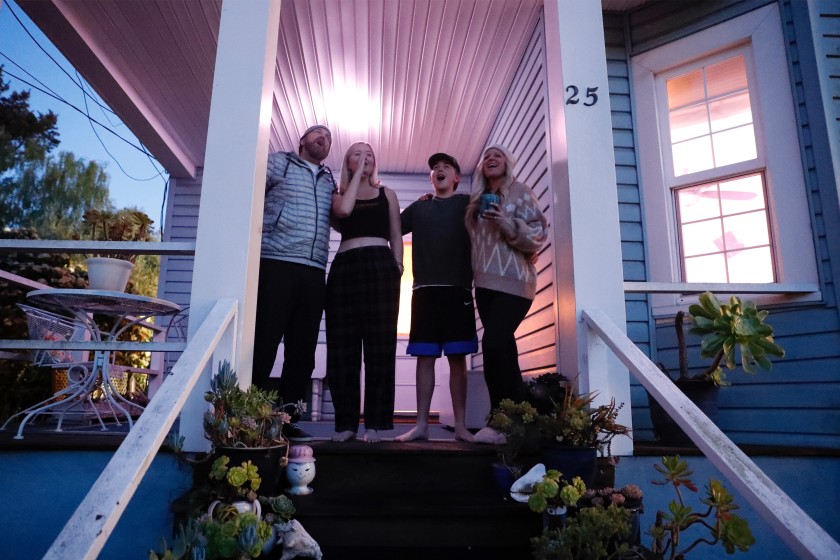Hypothetically speaking ...
Whether we meant to or not, we've definitely developed a "pandemic culture." We list out the weird behaviors, terms, and phrases that Americans have developed during the coronavirus pandemic to take a hypothetical look at how history lessons may attempt to explain coronavirus culture, 50 years from now.
POV: History Class in 2070
So, class: How did we get to where we're at today? Well, it can all be traced back to the Coronavirus Pandemic of 2020—specifically the crazy effects it had on American culture of the time.
Background
One of the most fascinating aspects of this Coronavirus Pandemic period was how quickly and dramatically Americans' way of life changed. In early 2020, the COVID-19 disease was virtually unheard of among the general U.S. population as, at that time, it had only affected a handful of people in China.
In fact, news stories in January 2020 centered around the tragic death of retired NBA basketball star Kobe Bryant and followed along with the coverage of President Donald Trump's impeachment trial.
But by late February, the coronavirus outbreak had officially reached American soil, and the Centers for Disease Control and Prevention (CDC) announced that its spread throughout the United States was inevitable.
Culture Changes
The coronavirus culture shock began around March 12, 2020, with the cancellation and closures of:
- Most professional sports leagues' seasons
- Music concerts
- College campuses
- Schools (Most transferred to online learning platforms)
- Church services
- Any other large gatherings
Over the next few weeks many businesses deemed "non-essential" would be temporarily closed as well, asking employees to work remotely or laying them off altogether.
Weird Behaviors
As their way of life crumbled around them, Americans collectively delved into unusual behaviors, such as:
-
Hoarding toilet paper. While grocery stores were ravaged of essential items, toilet paper took an especially hard hit for the first few weeks and was difficult to find.

Courtesy of Reuters
-
Developing an obsession with a documentary about a tiger keeper in Oklahoma, called Tiger King.

Courtesy of Netflix
-
Howling like wolves at 8 p.m. to show support for health care workers and create solidarity with each other.

Courtesy of San Francisco Chronicle
-
Using the Nintendo Switch game "Animal Crossing" to live vicariously through its booming cartoon economy.

-
Holding drive-by birthday parades, where friends would drive by a person's house and shout birthday wishes and greetings from the car.

Courtesy of The Daily Iberian
-
Hanging Christmas lights (out-of-season) on roofs and in windows to show solidarity as a community.

Courtesy of TEGNA
-
Hand-making cloth masks to wear over one's nose and mouth. These became a bit of a fashion statement for people as they would choose patterns and colors they didn't mind wearing out in public.

Courtesy of Meo
-
Utilizing video-conference calls, which at that time had been primarily used for business, for virtual family get-togethers, online dating, and more.

Courtesy of Twitter
-
Baking more bread than what was normal at the time.

Courtesy of Pixabay
-
Experimenting with bright hair color or unusual self-cut hairstyles (often called "quarantine hair") or growing out an unruly beard (called a "quarantine beard").

Kelly Osbourne, courtesy of Entertainment Tonight
-
Filming themselves doing crazy things in short video segments and circulating them in an online platform called "TikTok."

Courtesy of The Eyeopener
-
Circulating "memes" that drew attention and humor to all of the above. These memes were used as coping mechanisms.
Weird Terms and Phrases
Terms and phrases coined (or which gained widespread popularity) during this time period include:
- Self-quarantine
- Self-isolation
- Social-distance / social-distancing
- Zoom (originating from a video-conference platform company)
- Stay-at-home
- "Stay safe"
- "These uncertain times"
- "These unprecedented times"
- "These trying times"
In addition, this was the beginning of the widespread "internal questions" wherein people identified themselves, their skills, and their entire personhood as either "essential" or "non-essential."
And, of course, we all know what happened after that.
***
What did we miss? What are other ways that history might try to explain these "unprecedented, uncertain, trying times"? What are some more weird behaviors and terms that have become a part of the coronavirus culture? Leave a comment, and let us know!
